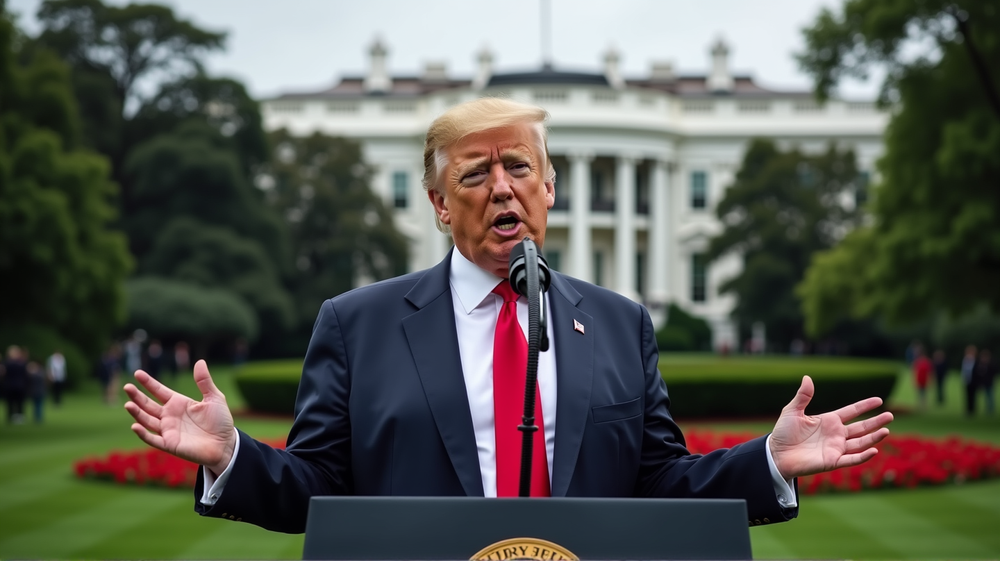In a bold move that has sent shockwaves through the global economy, U.S. President Donald Trump announced sweeping tariffs, redefining the landscape of international trade. The imposition of a 10% baseline tariff on most imported goods, coupled with elevated tariffs on key trading partners like China and the European Union, marks a dramatic escalation in the global trade war.
A Global Market Spirals
The aftermath of Trump’s announcement was immediately felt as global stock markets reacted with volatility. Investors worldwide turned towards bonds and gold, seeking refuge from the uncertainty. Notably, Japan’s Nikkei index plummeted, reflecting investor concerns about the ongoing trade tensions.
China and EU Stand Firm
In an assertive stance, China—the world’s second-largest economy—responded to the U.S. tariffs with vows of countermeasures. The European Union, led by Ursula von der Leyen, echoed similar sentiments, preparing to retaliate should negotiations with Washington falter. According to Reuters, these developments suggest a challenging road ahead for diplomatic resolutions.
Domestic Reactions and Republican Dissonance
Domestically, the impact of the tariffs has stirred up political discourse. Some Republican leaders have expressed reservations about the long-term effects of Trump’s aggressive trade policies, fearing repercussions on American households and industries. Despite facing opposition, the President’s administration insists these measures will ultimately benefit the domestic economy.
Broader Economic Implications
Beyond the immediate market fluctuations, analysts warn of broader economic consequences. The tariffs threaten to slow global economic growth, potentially ushering in a recession and burdening the average American with higher living costs. With countries like Canada and Mexico already under heavy tariffs, the ramifications continue to unfold.
Closing Trade Loopholes
In a parallel effort to tighten trade controls, President Trump signed an order to close the “de minimis” loophole that had allowed duty-free shipments of goods valued under $800. This decision aims to curb illicit trade routes exploited by traffickers, with a notable focus on goods from China and Hong Kong.
Looking Ahead
As the world grapples with this new era of trade uncertainty, the administration is contemplating additional tariffs on critical sectors like semiconductors and pharmaceuticals. The long-term impact of these policies remains uncertain, but the immediate effects are unmistakable. The stage is set for a convoluted interplay of economic strategies, political maneuvering, and international diplomacy.













